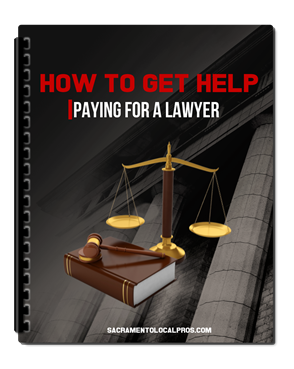The thought of filing for bankruptcy can be a terrifying experience. However, it's not something to be ashamed of, as it can happen to anyone due to unforeseen circumstances such as job loss, medical bills, or other emergencies.
That's why it's important to know some bankruptcy tips that can help avoid financial ruin.
These tips can help you before, during, and after filing for bankruptcy, ensuring you come out of the process in the best possible position to start rebuilding your financial life.
1)) Create A Budget
One of the essential things to do to avoid filing bankruptcy is to create and stick to a budget.
Budgeting helps you prioritize your expenses and limit unnecessary spending.
It requires you to develop a habit of tracking expenses, analyzing your income, and making plans that ensure you don't overspend beyond your income.
With proper budgeting, you're less likely to live beyond your means, have bad debts, and acquire too much credit.
Tips To Help You Create A Budget:
- Start by recording all income and expenses: This includes your monthly salary, bonuses, gifts, or other income sources. It also includes all your expenses, whether fixed or variable, like rent, food, transport, utilities, etc.
- Prioritize necessary expenses: After listing out all your expenses, identify the ones that are absolutely necessary, such as food, housing, and healthcare. These expenses should always be catered for first in your budget.
- Categorize your spending: This could be into categories such as bills, groceries, entertainment, etc. This can help you identify areas where you might be overspending.
- Use budgeting tools or apps: There are numerous budgeting tools and apps available today that can help simplify the process of tracking and managing your finances.
- Review and adjust your budget regularly: Your income and expenses may fluctuate, so regular review and adjustment are imperative for a successful budget.
- Limit non-essential spending: By cutting back on non-essential expenses such as dining out or entertainment, you can save more and manage your finances better.
Effective budgeting is a foundational step toward averting financial distress.
It provides a clear view of your income and spending habits, enabling you to make informed financial decisions.
By consistently tracking expenses, prioritizing necessities, categorizing spending, leveraging budgeting tools, and limiting non-essential expenditures, you are likely to gain better control over your finances.
The goal is not just to create a budget, but also to adhere to it consistently, adjusting as needed to accommodate changes in your financial situation.
This indispensable tool can help you avoid the path to bankruptcy and set you on the road to financial stability.
2)) Build An Emergency Fund
Another way to avoid filing for bankruptcy is to develop an emergency fund. This fund is referred to as a cushion that provides financial coverage for emergencies such as medical bills, job loss, car repair expenses, or other unexpected events.
By setting aside a percentage of your income into savings, you can manage to build up an emergency fund that will give you the peace of mind you need during difficult periods.
- Determine your target amount: It's common advice to aim for an emergency fund that can cover at least three to six months' worth of living expenses. This provides a safety net in case of a major unexpected expense or loss of income.
- Start small if necessary: If saving several months' expenses seems daunting, start with a smaller goal. Even a small emergency fund can provide a buffer against minor unexpected costs.
- Make savings automatic: Consider setting up automatic transfers from your checking account to your savings account every month. This helps ensure you're consistently contributing to your fund.
- Cut back on non-essential expenses: Review your budget and look for areas you can trim to increase your savings rate. This could be dining out less, canceling unused subscriptions, or avoiding impulse purchases.
- Consider a high-yield savings account: These types of accounts offer a higher interest rate than a traditional savings account, meaning your money will grow faster over time.
- Replenish the fund as necessary: If you do have to dip into your emergency fund, aim to replenish it as soon as you are able. It's also important to review and adjust the target amount for your fund as your circumstances change.
Tips For Building An Emergency Fund:
Building an emergency fund serves as a safety net, offering a financial buffer in times of unexpected expenses or income loss.
A well-maintained emergency fund begins with establishing a realistic target, starting small if needed, and making regular contributions.
It calls for trimming non-essential expenses and opting for high-yield savings accounts where possible.
Importantly, it also includes replenishing the fund when used and adjusting it to align with changing circumstances.
An emergency fund, therefore, becomes a significant step towards financial resilience and bankruptcy avoidance.
3)) Keep Your Credit Score Healthy
Keeping your credit score high can be a useful weapon against bankruptcy. A credit score is a measure of financial reliability, and it's crucial to keep it healthy.
Paying bills on time, maintaining a healthy credit-to-debt ratio, and keeping old credit accounts open to build credit history can help you keep your credit score healthy.
With a healthy credit score, you're more likely to receive loans with lower interest rates, avoiding high-interest debts that can contribute to filing bankruptcy.
Tips To Help You Keep Your Credit Score High:
- Pay your bills on time: Late or missed payments can have a significant negative effect on your credit score. Set up reminders or auto-payments to ensure you're always on time.
- Maintain a low credit utilization ratio: This ratio indicates the proportion of your available credit you're using. It's recommended to keep it below 30% to protect your score.
- Limit new credit applications: Each time you apply for credit, it causes a small, temporary drop in your score. Apply only when necessary.
- Monitor your credit report: Regularly checking your credit report can help you spot and correct errors that could harm your score.
- Keep old credit accounts open: Length of credit history is a factor in your score. Unless there's a compelling reason, keep your oldest accounts open.
- Diversify your credit: Having a mix of credit types (credit cards, mortgages, car loans, etc.) can positively impact your score. But be cautious not to overextend yourself financially.
Maintaining a healthy credit score is pivotal in staving off bankruptcy and fostering financial stability.
It is effectively accomplished by keeping a strict schedule of bill payments, maintaining a low credit utilization ratio, limiting new credit applications, regularly monitoring your credit reports, keeping old credit accounts open, and diversifying your credit.
A high credit score can enable you to secure loans at lower interest rates, thus reducing your risk of falling into high-interest debt traps that can lead to bankruptcy.
Ultimately, a healthy credit score reflects responsible financial management and is a strong safeguard against financial distress.
4)) Avoid Excessive Credit Card Debt
Excessive credit card debt is a common contributor to bankruptcy. It's essential to avoid overspending on credit cards as much as possible.
Try to use credit cards only for emergencies or for purchases that you can afford when the bill is due.
If you already have a significant amount of credit card debt, try to pay it off before the interest rate balloons out of control.
Tips To Prevent You From Maxing Out Your Credit Cards:
- Pay off your balances each month: Try to pay off your credit card balance in full each month to avoid interest charges. If this isn't possible, at least make the minimum payment to avoid late fees.
- Limit your credit card use: Use your credit card sparingly and only for necessary purchases. Avoid impulse buying and unnecessary expenses.
- Create a budget: Make a monthly budget to track your income and expenses. This will help you manage your credit card spending more effectively.
- Use cash or debit cards: Whenever possible, use cash or a debit card for purchases. This will prevent you from overspending on your credit card.
- Consider a balance transfer: If you're paying high interest on your current credit card, consider transferring the balance to a card with a lower interest rate.
- Seek credit counseling: If your credit card debt is overwhelming, consider seeking advice from a credit counseling agency. They can offer strategies for managing your debt and potentially work with your creditors to lower your payments.
Avoiding excessive credit card debt is crucial in preventing the threat of bankruptcy.
Achieving this involves diligent repayment of balances each month, limiting credit card use to necessary purchases, maintaining a strict budget, and utilizing cash or debit cards whenever possible.
Transferring balances to cards with lower interest and seeking professional credit counseling are also viable strategies when burdened with high-interest credit card debt.
Through these practices, you can keep credit card debt at bay, thereby promoting secure and healthy financial status.
5)) Seek Financial Assistance
If you're already swimming in a pool of debt, it's important to seek financial help before you resort to filing bankruptcy.
Work with a debt counselor to help you analyze your debt position, come up with a budgeting plan, and set priorities that will help you pay off your debts.
This service can help you avoid filing for bankruptcy by working out a plan that will settle your debts.
Tips To Help You Get The Most Out Of Debt Counseling:
- Find a reputable counselor: Not all debt counselors are created equal. Do your homework to find a reputable non-profit agency.
- Be honest about your situation: It's crucial that you openly share all aspects of your financial situation with your counselor. This will help them to provide the most effective advice and strategies.
- Follow advice diligently: Once a plan is created, adhere to it religiously. Straying from your budget or payment plan can derail your efforts to avoid bankruptcy.
- Utilize educational resources: Many counseling agencies offer free resources and workshops on financial management. Take advantage of these opportunities to learn more about managing your finances.
- Communicate regularly: Keep your debt counselor updated on any changes in your financial situation. Regular communication will allow them to adjust your plan as needed.
- Avoid further debt: While working with a debt counselor, avoid taking on additional debt. Focus on paying off existing debts instead.
Reaching out for financial assistance when faced with mounting debts is a wise and proactive step toward avoiding bankruptcy.
This involves finding a reputable debt counselor, being transparent about your financial situation, ardently adhering to the devised plan, and constantly updating your counselor on changes in your financial status.
In addition, cease accumulating further debt and take full advantage of the educational resources provided by many counseling agencies.
By leveraging these strategies, you can navigate through financial difficulties, effectively manage debts, and potentially save yourself from the brink of bankruptcy.
6)) Protect Your Assets
Your assets are the property that you own, such as your home or car. You should take extra care of these assets to avoid losing them in bankruptcy.
Be sure to secure them by obtaining insurance coverage for any incidents that may occur, such as natural disasters or theft.
If you're having trouble keeping up with payments for an asset, consider negotiating a modified payment plan with your creditors instead of losing the asset.
Tips For Protecting Your Assets:
- Understand the value of your assets: Get a clear understanding of what your assets are worth. This can help you make informed decisions about which assets to focus on protecting.
- Purchase sufficient insurance: Ensure you have adequate insurance to cover potential loss or damage to your assets, such as home, car, and health insurance.
- Consider asset protection strategies: Consult with a financial advisor or attorney about strategies for protecting your assets, which could include trusts or business entities.
- Keep up with payments: Stay current with your payments on assets such as a home or car loan. If this becomes a challenge, communicate with your creditors about modified payment plans.
- Maintain your assets: Regular maintenance can help extend the life of your assets and protect their value. This includes home maintenance, vehicle servicing, etc.
- Avoid risky investments: Be cautious about putting your assets at risk in high-risk investments. Diversify your portfolio to spread the risk.
- Plan for the future: Consider your long-term financial goals and how your assets fit into these plans. Estate planning can also help protect your assets for future generations.
Taking measures to protect your assets is an effective strategy for mitigating the potential impact of bankruptcy.
This involves understanding the value of your assets, securing adequate insurance coverage, employing strategic asset protection methods, maintaining regular payments, and preserving the condition of your assets.
Also, prudent investment practices and future-oriented planning play a critical role in safeguarding your material resources.
By executing such measures, you can strengthen your financial resilience and enhance the security of your assets.
7)) Consider Bankruptcy As A Last Resort
Filing for bankruptcy should be a last resort after you've exhausted all options.
If you've tried cutting back spending, negotiating with creditors, and receiving debt counseling but haven't been able to resolve your financial problems, then bankruptcy might be your only option.
Be sure to determine whether bankruptcy is the best possible solution to your financial problems before making the move.
Tips To Help If You're Considering Declaring Bankruptcy:
- Exhaust all alternatives: Before considering bankruptcy, explore all other avenues like debt consolidation, debt management plans, or negotiating directly with creditors.
- Consult a credit counselor: Seek advice from a reputable credit counseling agency. They can provide guidance about whether bankruptcy is the right choice given your financial situation.
- Understand the impact on credit: Bankruptcy can stay on your credit report for up to ten years, making it difficult to secure loans or credit in the future. Be sure you understand the long-term implications.
- Consider the type of debts you owe: Some types of debt, like student loans and alimony, cannot be discharged in bankruptcy. Make sure you understand what bankruptcy can and cannot do for your debt situation.
- Evaluate your assets: If you have significant assets, bankruptcy may lead to their liquidation. It's important to understand what you may lose.
- Legal advice: Consult with a bankruptcy attorney to understand the legal process and implications of filing for bankruptcy. They can guide you through the complexities of bankruptcy law and the different chapters of bankruptcy.
- Mental and emotional health: Bankruptcy can bring significant stress and emotional distress. Consider seeking support from professionals or support groups to navigate these challenges.
Bankruptcy is a significant decision that comes with long-lasting repercussions, hence it should always be viewed as a final recourse.
It's crucial to exhaust all potential alternatives, understand the lasting impact on your credit, and consider the types of debts you owe.
Furthermore, the potential loss of assets and the mental toll bankruptcy can take should not be overlooked.
Obtaining advice from credit counselors and legal experts is instrumental in making an informed decision.
Bankruptcy is not an easy fix, but a serious financial step that requires careful consideration.
8)) Know The Types Of Bankruptcy
There are different types of bankruptcy, and understanding them all is important.
Some types of bankruptcy, such as Chapter 7 allow you to discharge some or all of your debt and liquidate assets to pay off creditors, while Chapter 13 allows you to restructure your debt and avoid liquidation of assets.
Consider which type of bankruptcy is right for you and speak to a qualified bankruptcy attorney to ensure you make an informed decision.
Helpful Tips:
- Understand the different types: Familiarize yourself with the various types of bankruptcy—primarily Chapter 7, Chapter 11, and Chapter 13—each of which serves a different purpose and may be more suitable depending on your specific circumstances.
- Evaluate your debts and assets: The type of bankruptcy you choose may depend largely on your assets and the nature of your debts. For instance, secured debts might be best handled through Chapter 13 bankruptcy, while unsecured debts could be better managed with a Chapter 7 filing.
- Consider your future financial goals: Some types of bankruptcy may stay on your credit report longer than others, which could influence your future financial plans. Understanding these implications can help you choose the most appropriate type of bankruptcy.
- Legal advice: Consult a bankruptcy attorney who can provide expert advice and guide you through the complexities of each bankruptcy type.
- Research: Take the time to research and educate yourself about the advantages and drawbacks of each bankruptcy type. This knowledge will assist you in making an informed decision that aligns with your financial situation and goals.
- Think about the long-term impact: Bankruptcy can have lasting effects on your financial situation and credit score. Consider how each type of bankruptcy might impact your long-term financial health before making any decisions.
Understanding the types of bankruptcy is a crucial step in navigating your financial journey.
Each type of bankruptcy, be it Chapter 7, Chapter 11, or Chapter 13, caters to different scenarios and carries distinct implications for your assets, debts, and future financial plans.
Professional legal advice and thorough research are paramount to comprehending these nuances.
Bankruptcy is not merely a short-term solution for debt relief, but a decision that will impact your financial health in the long run.
Choose wisely, understanding the pros and cons associated with each type, to ensure the best possible outcome for your financial future.
9)) Take The Time To Prepare Correctly
Preparing for bankruptcy is not just about filling out a form and presenting it in court.
It requires proper planning and organization to gain the best possible outcome.
Hire a qualified bankruptcy attorney to help you prepare and file the paperwork, ensuring you're not leaving anything out and are approaching the situation correctly.
Preparation Tips:
- Organize Your Financial Records: Gather and maintain all pertinent financial records such as income statements, tax returns, and details of your assets and liabilities. This will provide a clear picture of your financial situation.
- Hire a Bankruptcy Attorney: Engage the services of a proficient bankruptcy attorney who can guide you throughout the process, ensuring all paperwork is filled out correctly.
- List All Your Debts: It's important to list all your creditors, even if you intend to repay some debts or believe some are not dischargeable. Omitting any could lead to those debts not being discharged.
- Take Credit Counseling: Participate in a credit counseling course from a government-approved organization. This step is a requirement before you can file for bankruptcy.
- Be Honest: Do not attempt to hide assets or misrepresent your financial state. Honesty is crucial as any form of deceit might lead to your bankruptcy case being dismissed.
- Consider the Timing: Certain financial actions can impact your bankruptcy. For instance, running up credit card debt right before filing could be seen as fraud. Discuss the timing of your bankruptcy with your attorney.
- Prepare Mentally: Bankruptcy can be emotionally draining. Prepare yourself mentally for the process and consider seeking support from professionals or support groups if needed.
Preparation is key when considering bankruptcy. It goes beyond just filling out forms; it involves thorough organization, full disclosure of debts, and honesty about your financial state.
Engaging a qualified bankruptcy attorney, participating in credit counseling, and being mindful of the timing are all important steps in this journey.
Bankruptcy isn't just a financial process—it's an emotional one too.
Prepare yourself mentally and seek support as needed. The right preparation can significantly influence the outcome of your bankruptcy process, aiming toward the best possible solution for your financial situation.
10)) Stay Positive
It's crucial to maintain a positive attitude when facing financial difficulties.
Bankruptcy is not the end of the world, and there's always room for improvement in life.
Stay positive, seek help when needed, and continue to work towards your financial goals.
Tips To Help You Maintain A Positive Attitude:
- Focus on the Future: Remember, bankruptcy is a means to get a fresh start. Instead of dwelling on the past, channel your energy towards rebuilding your financial future.
- Seek Support: Don't hesitate to lean on friends, family, or professional counselors during this tough time. You're not alone in this journey, and seeking support can be greatly beneficial.
- Maintain a Healthy Lifestyle: Regular exercise and a balanced diet can help manage stress and foster a positive mindset.
- Practice Mindfulness: Engage in activities like meditation or yoga that promote mindfulness and help you maintain a balanced perspective.
- Educate Yourself: The more you understand about your financial situation, the less overwhelming it will feel. Knowledge is power, and it can help you make informed decisions moving forward.
- Set Small, Achievable Goals: Rather than focusing on the larger financial picture, set small, realistic goals to work towards. Each step you take towards these goals will boost your confidence and positive outlook.
- Celebrate Wins: Regardless of how small they might seem, remember to celebrate your wins. Each victory is a step towards your financial recovery.
- Stay Hopeful: No matter how difficult things may seem, always remember that there is hope. Many people have successfully navigated bankruptcy and emerged stronger. You can too.
Staying positive during financial adversity is more than just a mindset; it's a strategy that can propel you toward financial recovery.
By focusing on the future, seeking support, practicing a healthy lifestyle, and celebrating small victories, you can navigate the challenging bankruptcy process with resilience and hope.
Bankruptcy is not an end but a new beginning.
Like many before you, with the right attitude and resources, you can emerge stronger and more financially savvy from this experience.
Conclusion
Facing bankruptcy might seem scary, but with the right approach and mindset, it can be navigated successfully.
Preparation, honesty, assistance from professionals, and a positive attitude are essential in this journey.
Understanding that bankruptcy is not the end, but rather a fresh beginning can make the process less overwhelming.
This guide aims to provide practical steps and strategies to help you, but remember that everyone's situation is unique.
Therefore, seeking professional advice tailored to your circumstances is always recommended.
With the right support and a proactive attitude, you can turn this challenging situation into an opportunity for financial renewal and growth.
Download Our Free E-book!








